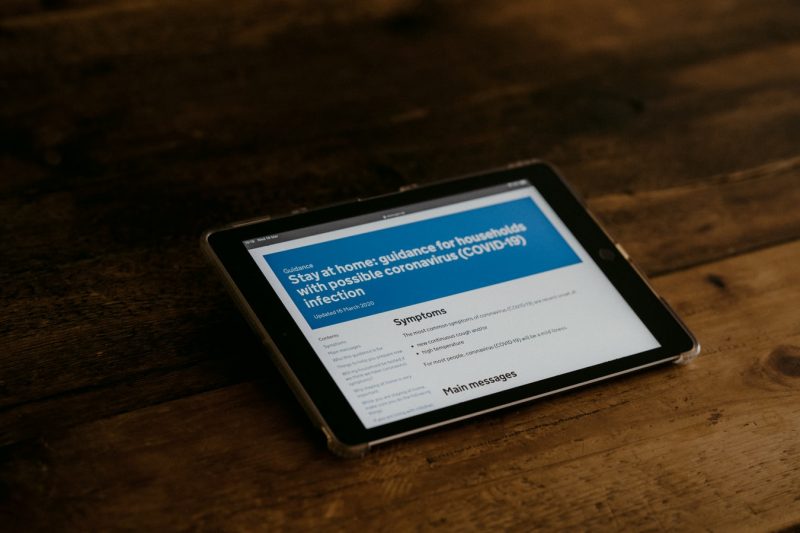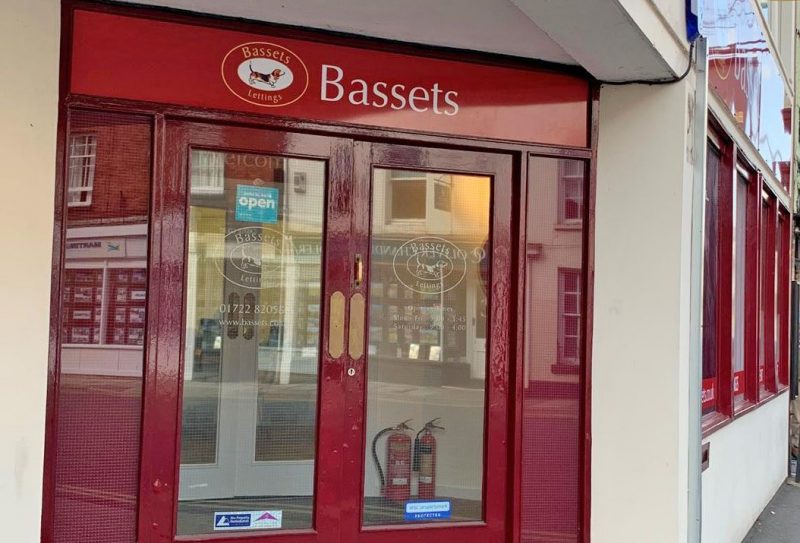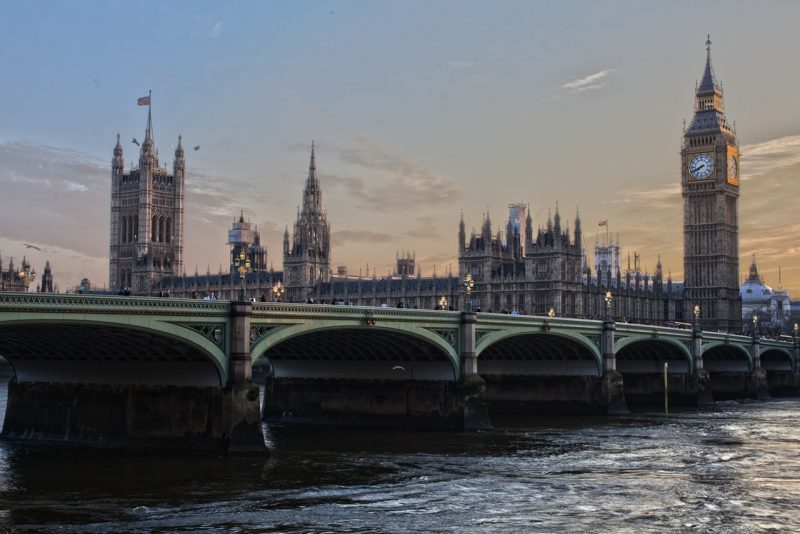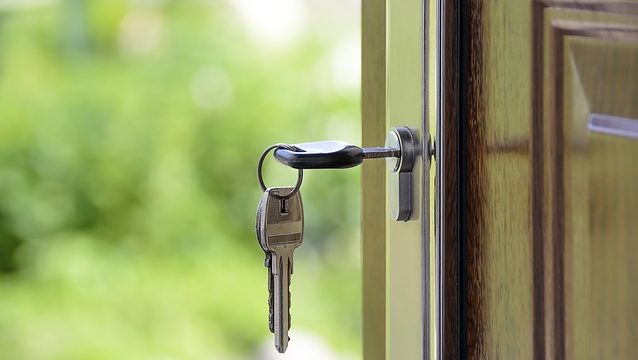This guidance is advisory and informs you about recent changes to the law. All guidance is subject to frequent updates and should be checked regularly for currency. We urge all landlords and tenants to abide by the latest Government guidance on COVID-19, which can be found at: https://www.gov.uk/coronavirus
1. Rent, mortgage payments and notices seeking possession
The purpose of this advisory guidance is to help landlords and tenants understand the implications of the Coronavirus Act 2020. The Act will mean that, until 30th September 2020, most landlords will not be able to start possession proceedings unless they have given their tenants three-months’ notice. Landlords can choose to give more than this three months’ notice.
2. Court action on housing possession cases during the Coronavirus (COVID-19) outbreak
As well as the provisions in the Act, the Master of the Rolls, with the agreement of the Lord Chancellor, has announced the suspension of housing possession cases in the courts – this affects new or existing claims for possession for a 90 day period from 27th March.
We strongly advise landlords not to commence new notices seeking possession during this challenging time without a very good reason to do so. It is essential that we work together in these unprecedented circumstances to keep each other safe.
3. Property access and health and safety
The purpose of this advisory guidance is to support and encourage landlords and tenants in adopting a pragmatic, common-sense approach to issues that may arise in the current circumstances.
Tenants have a right to a decent, warm and safe place to live – it is in the best interests of both tenants and landlords to ensure that properties are kept in good repair and free from hazards.
1. Rent, mortgage payments and possession proceedings
1.1 As a tenant, should I stop paying rent during the outbreak?
• Tenants should continue to pay rent and abide by all other terms of their tenancy agreement to the best of their ability. The government has a strong package of financial support available to tenants, and where they can pay the rent as normal, they should do. Tenants who are unable to do so should speak to their landlord at the earliest opportunity.
• In many if not most cases, the COVID-19 outbreak will not affect tenants’ ability to pay rent. If your ability to pay will be affected, it’s important to have an early conversation with your landlord. Rent levels agreed in your tenancy agreement remain legally due and you should discuss with your landlord if you are in difficulty.
1.2 What can I do about rent arrears?
• Tenants should continue to pay rent and abide by all other terms of their tenancy agreement to the best of their ability. Tenants who are unable to do so should speak to their landlord at the earliest opportunity.
• As part of our national effort to respond to the COVID-19 outbreak, it’s important that landlords offer support and understanding to tenants who may start to see their income fluctuate.
• An early conversation between landlord and tenant can help both parties to agree on a plan if tenants are struggling to pay their rent. This can include reaching a temporary agreement not to seek possession action for a period of time and instead accept a lower level of rent or agree on a plan to pay off arrears at a later date. Where a landlord does choose to serve a notice seeking possession for rent arrears or has done so already, the notice period and any further action will be affected by legislation lengthening the notice period (see Section 1.3) and/or the suspension of possession claims (see Section 2).
• If a landlord and tenant agree a plan to pay off arrears at a later date, it is important they both stick to this plan, and that tenants talk to their landlord immediately if they are unable to do so.
• If a tenant is worried about being unable to pay their rent, or if landlords become aware of tenants who may be in difficulty, advice is available from specialist providers such Shelter, Citizens Advice and The Money Advice Service.
• Local authorities can provide support for tenants to stay in their homes. If you are experiencing financial hardship, you may be able to access new funding; we have already made £500m available to fund households experiencing financial hardship and are determined to take action to support people in need.
• You can also find more information on Government support for employers and employees here: https://www.gov.uk/government/publications/guidance-to-employers-and-businesses-about-covid-19
• If you are worried about being evicted and not having anywhere else to go, you should speak to your local authority.
• If you fall into financial difficulties due to a change in your employment or earnings, for example, you may qualify for Universal Credit. Property Guardian licence agreements are a valid tenancy arrangement for receiving housing costs support in Universal Credit. Find more information about Universal Credit at: https://www.gov.uk/how-to-claim-universal-credit.
• The Coronavirus Act 2020 means that landlords who do issue notices seeking possession will not be able to progress any further before the expiry of the notice. All notices for both the private and social rented sector tenancies are for three months.
• Regardless of this legislation, where tenants have difficulty paying rent over this period, we ask that landlords do not issue a notice seeking possession, particularly given that the tenant may be sick or facing other hardship due to COVID-19.
1.3 Protections for tenants under the Coronavirus Act 2020, in force from 26 March 2020.
• The Coronavirus Act 2020 protects most tenants and secure licensees in the private and social rented sectors by putting measures in place that say where landlords do need to issue notices seeking possession, the notice period must be for three months. Landlords can choose to give a longer notice period. From 27th March, any claims in the system or about to go into the system will be affected by a 90-day suspension of possession hearings and orders (see Section 2).
• At the expiry of the three-month notice, a landlord cannot force a tenant to leave their home without a court order. When the three-month notice period expires, a landlord would still need to take court action if the tenant was unable to move. With regard to current proceedings, the Lord Chief Justice has written to the judiciary urging to prioritise applications to suspend warrants of possession and not to make any order that risks impacting on public health. We strongly advise landlords not to commence or continue eviction proceedings during this challenging time without a very good reason to do so. As of 27th March, proceedings will be suspended for the next 90 days.
• For further information about possession proceedings during the Coronavirus outbreak, please see Annex A Technical Guidance.
1.4 What can I do about mortgage repayments?
• Mortgage lenders have agreed to offer payment holidays of up to three months where this is needed due to Coronavirus-related hardship, including for buy-to-let mortgages. The sum owed remains and mortgages continue to accrue interest during this period.
• Where a tenant is unable to pay their rent in full the landlord – if a mortgagor – should discuss this with their lender.
1.5 I’m a shared owner, how does this affect me?
• Most shared owners will pay both rent and a mortgage. Like other mortgage holders, shared owners who are struggling to meet their mortgage payments as a result of COVID-19 will be able to request a mortgage payment holiday from their lender. Most shared owners will also be covered by the new Coronavirus Act 2020, meaning their landlords will not be able to start possession proceedings unless they have given shared owners three-months notice.
• Shared owners should continue to meet their financial commitments where possible. The government has introduced a strong package of financial support, so where they can, shared owners should still pay the rent to their landlord and mortgage to their lender as normal. Shared owners who are unable to do so should speak to their landlord and mortgage provider at the earliest opportunity.
1.6 As a landlord, should I stop charging rent during the outbreak?
• Landlords are not required to do this. Most tenants will be able to pay rent as normal and should continue to do so, as they will remain liable for the rent during this period.
• There is no ‘one-size fits all’ approach, as each tenant’s circumstance is different and some will be worse affected in terms of their ability to pay than others. It is important for landlords to be flexible and have a frank and open conversation with their tenants at the earliest opportunity, to allow both parties to agree on a sensible way forward.
1.7 Extending the current ‘pre-action protocol’ on possession proceedings to private landlords
• The government is working with the Master of the Rolls to widen the existing ‘pre-action protocol’ on possession proceedings for Social Landlords, to include private renters and to strengthen its remit.
• This will ensure that private sector landlords reach out to tenants to understand the financial position they are in before taking possession action through the courts once the 3-month delay on issuing eviction proceedings has ended.
• It will encourage landlords and tenants to work together to agree on an affordable rent repayment plan if their tenants fall into rent arrears.
1.8 I have a licence to occupy, am I protected by the Coronavirus Act?
• This legislation only applies to tenants so will not apply to licences to occupy (other than a secure licence under the Housing Act 1985). We are urging the landlords of those on licences to occupy to follow the same guidance and to work with renters who may be facing hardship as a result of the response to COVID-19. For detail on whether licensees will be covered by the announced suspension of possession hearings and orders, see Section 2. If you do not know whether you have a licence or a tenancy you should seek independent advice.
• Government has put in place an unprecedented support package to help prevent people getting into financial hardship or rent arrears, including support for business to pay staff salaries, as well as important changes to statutory sick pay and the benefits system. Furthermore, we are offering support for businesses, such as property guardian companies, so that they can support their renters.
1.9 I have lost my job which came with accommodation, and they have told me I have to move out. What rights do I have?
• You may be covered by the new legislation depending on the type of tenancy that you hold.
• If your place of employment requires you to live-in to be able to do the job, or the occupation of the accommodation is necessary for the performance of your duties, and your contract clearly states this, you are classed as a “service occupier”. This will include some teachers in boarding schools, caretakers, carers and hotel staff, for example. As you do not have a tenancy in this situation you are not covered by this emergency legislation.
• If you are not a tenant and your employer wants to end your employment because you are no longer required (rather than due to misconduct) they should tell you at least one week in advance. Check your employment contract as it may set out how much notice you should be given. Your landlord will usually have to apply to the court for a possession order if you do not leave when the notice period expires. Given the extraordinary circumstances, we recommend discussing the issue with your employer and that employers are as flexible and understanding as possible.
• If you have a job that offers self-contained accommodation, but it is not a requirement as part of the job and your landlord is not a local authority, you may hold a tenancy regulated by the Housing Act 1988. If so, this will be covered by the change in legislation.
• If you’re living in accommodation provided by the local authority, you are an employee of the council, and your contract of employment requires you to live in the accommodation for the better performance of your duties, your tenancy is a non-secure tenancy under the Housing Act 1985. These new provisions will also not apply to you.
• If your local authority employer wants to end your service tenancy because they no longer require your services they must give you at least four weeks’ notice. Check your employment contract as it may set out how much notice you should be given. Your landlord will usually have to apply to the court for a possession order if you do not leave when the notice period expires.
1.10 I’m a property guardian, how do I know if I’ve got a licence or a tenancy?
• Property guardianship agreements are usually offered on a contractual licence to occupy. The licence will provide the right to occupy premises in return for the payment of a licence fee or performance of a service. In law, a licence usually arises when there is no right to exclusive possession or there is no intention to enter into a legal relationship of landlord and tenant. However, if the licensee has exclusive possession, it may be a tenancy, even if the agreement calls it a licence.
1.11 Do I have to move if my landlord does not have a court order?
• We are asking landlords not to issue new notices seeking possession, and the suspension of housing possession claims from 27 March 2020 means that existing notices seeking possession cannot progress. If you are a tenant, the Protection from Eviction Act 1977 means that you cannot be forced to leave your home without a court order and warrant for the execution of that order. The 1977 Act also protects some people who occupy their home under a licence. Breaches of the Act can give rise to civil action and be a criminal offence.
• Even where the Protection from Eviction Act does not apply a landlord cannot use violence or threat of violence to evict someone.
Note: if you require advice on individual cases, or you are worried you may have been illegally evicted, you should contact a free, impartial advice service such as Citizens Advice or Shelter.
2. Court action on housing possession cases during the coronavirus outbreak
• In addition to the measures in the Coronavirus Act 2020 set out above, the Master of the Rolls, with the agreement of the Lord Chancellor, has issued a Practice Direction to stop possession claims from progressing.
• The suspension will apply for 90 days from 27th March 2020 to all housing possessions proceedings in the rented, leasehold and homeownership sectors.
• This action is in line with public health advice, which has advised against the non-essential movement in response to coronavirus.
2.1 What does this mean for landlords and tenants in the private or social rented sectors?
• If you have already been issued with a notice of your landlord’s intention to seek possession of the property, or if you are issued a notice in the next 90 days, your landlord will not be able to take action through the courts to make you move. This suspension will initially apply for 90 days from the 27th March.
• For landlords, this will mean not expecting tenants to move even where you have already issued a notice of your intention to regain possession of the property, or if you go on to issue a notice for any reason during the next three months.
2.2 Who is covered by the suspension of housing possession cases?
• All tenants and licensees who benefit from protection from eviction under the Protection from Eviction Act 1977 will be protected from possession proceedings by this measure.
• This includes most tenants in social housing and the private rented sector and some licensees. Lodgings, holiday lets, hostel accommodation and accommodation for asylum seekers are excluded from those protections.
2.3 Other housing possession cases
• All housing possession orders covered by Civil Procedure Rules Part 55 will be covered.
• The suspension of housing possession cases will also apply to possession cases brought by mortgagees against homeowners, and to possession cases brought by landlords against leaseholders (forfeiture).
• If you are unsure what kind of tenancy you have and whether you will be protected by the suspension on notice periods, you should take independent legal advice. Shelter’s housing advice line and Citizens’ Advice may be able to help.
2.4 How does the Coronavirus Act 2020 interact with the courts suspending housing possession claims?
• The decision taken by the Master of the Rolls means that housing possession claims in the court system will be postponed, this means landlords will not be able to progress any claims where they have already issued a notice seeking possession for a 90 day period (subject to review).
• This new measure applies to cases currently in progress and cases where a landlord or mortgage company has already commenced possession proceedings on expiry of a notice seeking possession.
• A tenant issued with a three-month notice immediately after the Coronavirus Act 2020 comes into force would see that notice expire in three months. At the expiry of the notice, a landlord who wanted to take the next steps in progressing the possession claim would have to apply to the courts for a possession hearing, a process that ordinarily takes 6-8 weeks, and may take much longer under the current circumstances.
• The legislation covering notice periods is in force until 30 September 2020 and is subject to review and may be extended by secondary legislation.
• The suspension of housing possession cases is by a Practice Direction under the Civil Procedure Rules. The practice direction will suspend possession proceedings under Part 55 of the Procedure Rules for 90 days from 27th March.
3. Property access and health and safety obligations
The Government is asking everyone to do all they can to help stop coronavirus spreading and has published advice on maintaining strict separation from others wherever possible during this unprecedented time. You can see the latest Government guidance on Coronavirus here https://www.gov.uk/coronavirus.
We are committed to helping to ensure that everyone renting their home has a safe and decent place to live. As part of our national effort to respond to the COVID-19 outbreak, it’s vital that local authorities, landlords and tenants work together to keep rented properties safe. We continue to support the positive partnership between landlords and tenants which underpins all well-functioning tenancies.
It has never been more important that landlords and tenants take a pragmatic, common-sense approach to resolving issues. Tenants should let their landlords know early if there is a problem and landlords should take the appropriate action.
We understand current restrictions may prevent routine and obligatory inspections. While resources are stretched, we are recommending a pragmatic approach to enforcement from local authorities. This should mean that tenants who are living with serious hazards that a landlord has failed to remedy can still be assured of local authority support. Landlords should also know they should not be unfairly penalised where COVID-19 restrictions prevent them from meeting some routine obligations.
Tenants
3.1 What does this mean for repairs in my home?
• Landlords’ repair obligations have not changed. Tenants have a right to a decent, warm and safe place to live – and it is in the best interests of both tenants and landlords to ensure that properties are kept in good repair and free from hazards.
• Good management requires regular review and maintenance of a property, but we understand that planned inspections may be more difficult at this time. However, that is no reason to allow dangerous conditions to persist.
• You should inform your landlord early and engage constructively in the event that you encounter any issues with the condition of their property, and the effect of current restrictions should be considered.
• In these unprecedented times, we encourage tenants and landlords to take a pragmatic, common-sense approach to non-urgent issues which are affected by COVID-19 related restrictions.
3.2 What if my boiler breaks or something else happens which is an urgent risk to my health?
• Landlords’ repair obligations have not changed.
• Where reasonable, safe for you and in line with other Government guidance, we recommend that you allow local authorities, landlords or contractors access to your property in order to inspect or remedy urgent health and safety issues.
• Urgent health and safety issues are those which will affect your ability to live safely and maintain your mental and physical health in your home. This could include (but is not limited to):
− If there is a problem with the fabric of your building, for example, the roof is leaking
− If your boiler is broken, leaving you without heating or hot water
− If there is a plumbing issue, meaning you don’t have washing or toilet facilities
− If your white goods such as a fridge or washing machine have broken, meaning you are unable to wash clothes or store food safely
− If there is a security-critical problem, such as a broken window or external door
− If equipment a disabled person relies upon requires installation or repair
• You can find further guidance on visits to properties to make repairs here: https://www.gov.uk/government/publications/further-businesses-and-premises-to-close/further-businesses-and-premises-to-close-guidance#work-carried-out-in-peoples-homes
• You must continue to meet your legal and contractual obligations as a tenant, including paying rent where you are able to. See Section 1 if for guidance if you are experiencing difficulties paying your rent.
3.3 What about the risk of catching the virus, or if I am symptomatic?
• You must follow sensible precautions to keep yourself safe when contractors or others are visiting your property, as outlined in public health guidance found here www.gov.uk/coronavirus
• Where an issue is critical to your health and safety (see above), we strongly advise you take additional measures such as remaining in separate rooms during any visits and following Government advice on hygiene and cleanliness before, during and after visits.
• You do not need to have direct contact with anyone visiting your property to carry out repairs.
3.4 My landlord wants access to my property to conduct viewings for sale or letting, do I have to let them in?
• You and your landlord should follow the Government’s latest guidance necessary to help stop the spread of the virus which you can find here https://www.gov.uk/coronavirus
• We recommend that access to a property is only proposed for serious and urgent issues such as those set out above.
3.5 What if I have a move planned?
• Homebuyers and renters should, as far as possible, delay moving to a new home while emergency measures are in place to fight coronavirus. You can find specific Government advice on moving here https://www.gov.uk/guidance/government-advice-on-home-moving-during-the-coronavirus-covid-19-outbreak
• If moving is unavoidable for contractual reasons and the parties are unable to reach an agreement to delay, people must follow advice on maintaining strict separation to minimise the spread of the virus.
• Anyone with symptoms, self-isolating or shielding from the virus, should follow medical advice and not move home for the time being.
• Where moves do need to go ahead, all those involved should take care to follow Government guidance here: https://www.gov.uk/coronavirus
3.6 What should I do if I think I may have the virus?
• You should follow government guidance on self-isolation, which you can find here: https://www.gov.uk/government/publications/covid-19-stay-at-home-guidance
• You should tell anyone you share the property with immediately so that they can take appropriate action and make informed decisions regarding shared areas and access to the property. If your landlord needs to arrange a visit to the property for urgent health and safety reasons, you should also inform them and agree to take sensible precautions.
3.7 Someone in my House in Multiple Occupation (HMO) has the virus, is my landlord obliged to remove them or find me another place to stay?
• Nobody can be removed from their home because of the virus.
• Landlords are not obliged to provide alternative accommodation for tenants if others in the property contract the virus.
• If you are living in accommodation which you share with other people or share facilities with other people, you should follow current Public Health England guidance. If you are having to leave the accommodation, you should seek alternative accommodation, or get in touch with your local authority
• You can find Government guidance on cleaning your home to minimise the risk of infection here: https://www.gov.uk/government/publications/covid-19-decontamination-in-non-healthcare-settings
And on what to do if you are in a shared home with someone who may have the virus here: https://www.gov.uk/government/publications/covid-19-stay-at-home-guidance/stay-at-home-guidance-for-households-with-possible-coronavirus-covid-19-infection
Landlords
3.8 What does the current situation mean for repairs to my property?
• Landlords’ repair obligations have not changed. Tenants have a right to a decent, warm and safe place to live – and it is in the best interests of both tenants and landlords to ensure that properties are kept in good repair and free from hazards.
• Good management requires regular review and maintenance of a property, but we understand that planned inspections may be more difficult at this time. However, that is no reason to allow dangerous conditions to persist.
• We are encouraging tenants to inform landlords early and engage constructively in the event that they encounter any issues with the condition of the property. Technological solutions such as smartphones can be used to reduce the need for in-person inspections of property issues.
• Where reasonable and safe for you, and in line with other Government guidance, you should make every effort to review and address issues brought to your attention by your tenants and keep records of your efforts. You can find further guidance on visiting properties to make repairs here: https://www.gov.uk/government/publications/further-businesses-and-premises-to-close/further-businesses-and-premises-to-close-guidance
• However, in these unprecedented times, we encourage tenants and landlords to take a pragmatic, common-sense approach to non-urgent issues which are affected by COVID-19 related restrictions.
• Inspectors or maintenance workers can still visit blocks of flats and multi-occupied properties for essential or urgent work such as inspecting and testing fire alarm and emergency lighting systems.
• Urgent health and safety issues are those which will affect your tenant’s ability to live safely and maintain their mental and physical health in the property. This could include (but is not limited to):
− If there is a problem with the fabric of the building, for example, the roof is leaking
− If your boiler is broken, leaving your tenant without heating or hot water
− If there is a plumbing issue, meaning your tenant does not have washing or toilet facilities
− If the white goods such as a fridge or washing machine have broken, meaning the tenant is unable to wash clothes or store food safely
− If there is a security-critical problem, such as a broken window or external door
− If equipment a disabled person relies upon requires installation or repair
3.9 What about my legal obligations to provide regular gas and electrical safety inspections? Will I be prosecuted if I can’t get access because I or my tenants are self-isolating
• Landlords must provide tenants with all necessary gas and electrical safety and any other relevant certification at the beginning of a tenancy (and carry out all scheduled inspections and tests where required). Where inspections have already been carried out, documents can be provided by post or in some circumstances it may be possible to provide digital copies.
• Landlords should make every effort to abide by existing gas safety regulations and electrical safety regulations which come into force on 1 July. There are provisions in both regulations to account for situations in which a landlord cannot do this (see box below), and they must demonstrate they have taken all reasonable steps to comply with the law
• We are encouraging local authorities and other enforcement agencies to take a pragmatic, common-sense approach to enforcement in these unprecedented times. You can read the latest guidance for landlords and Gas Safe engineers and inspectors from the Health and Safety Executive here: https://www.gassaferegister.co.uk/help-and-advice/covid-19-advice-and-guidance/
• If you are not able to gain access to the property due to restrictions in place to tackle COVID-19, or are not able to engage a contractor to carry out the necessary work, we recommend you document your attempts to do so and all correspondence with your tenants.
• For further information about certifications relating possession proceedings during the Coronavirus outbreak, please see Annex A Technical Guidance
Electrical and gas safety in privately rented properties
The new Electrical Safety Standards in the Private Rented Sector Regulations 2020 were made on 18 March and will apply to all new tenancies on 1 July 2020 and for existing tenancies on 1 April 2021.
The Electrical Safety Regulations will require landlords to:
• Have the electrical installations in their properties inspected and tested by a person who is qualified and competent, at least every five years;
• Provide a copy of the report (known as the Electrical Safety Condition Report or EICR) to their tenants, and to the local authority if requested.
• If the EICR requires investigative or remedial works, landlords will have to carry this out.
The Gas Safety (Installation and Use) Regulations 1998 require landlords to have annual gas safety check on each appliance and flue carried out by engineer registered with the Gas Safe Register and to keep a record of each safety check. Further advice can be found on the Gas Safe Register’s website at https://www.gassaferegister.co.uk/help-and-advice/covid-19-advice-and-guidance/.
Both regulations are clear on the issue of compliance. If a landlord can show they have taken all reasonable steps to comply with their duty under the regulations, they are not in breach of the duty. With regards to the Electrical Safety Regulations a landlord would not be in breach of the duty to comply with a remedial notice and with regards to the Gas Safety Regulations a landlord would not be liable for an offence.
A landlord could show reasonable steps by keeping copies of all communications they have had with their tenants and with electricians as they tried to arrange the work, including any replies they have had. Landlords may also want to provide other evidence they have that the installation, appliance or flue is in a good condition while they attempt to arrange works.
3.10 What about the risk of catching the virus?
• You must follow sensible precautions to keep yourself safe when you or contractors or others are visiting the property, as outlined in public health guidance here: https://www.gov.uk/government/publications/covid-19-guidance-on-social-distancing-and-for-vulnerable-people/guidance-on-social-distancing-for-everyone-in-the-uk-and-protecting-older-people-and-vulnerable-adults
• You can take additional measures such as ensuring contractors and tenants remain in separate rooms during any visits and following Government advice on hygiene and cleanliness before, during and after visits.
• Wherever possible avoid all direct contact between residents and visitors to the property.
3.11 What about access to a property to conduct viewings or where a move is scheduled?
• Government has advised against home moves wherever possible. See separate advice here: https://www.gov.uk/guidance/government-advice-on-home-moving-during-the-coronavirus-covid-19-outbreak
• We recommend that landlords and tenants engage constructively about access to a property and that it is only proposed for serious and urgent issues. Follow the Government’s latest guidance on distancing measures necessary to help stop the spread of the virus here: https://www.gov.uk/coronavirus
• This means that no one should visit the property to conduct viewings, or anything else which is not urgent and health and safety-related.
• Homebuyers and renters should, as far as possible, delay moving to a new home while emergency measures are in place to fight coronavirus.
• If moving is unavoidable for contractual reasons and the parties are unable to reach an agreement to delay, people must follow advice on maintaining strict separation to minimise the spread of the virus.
• Anyone with symptoms, self-isolating or shielding from the virus, should follow medical advice and not move home for the time being.
• Where moves do need to go ahead, all those involved should take care to follow Government guidance here: https://www.gov.uk/government/publications/covid-19-stay-at-home-guidance/stay-at-home-guidance-for-households-with-possible-coronavirus-covid-19-infection
3.12 Someone in my House in Multiple Occupation has the virus, am I obliged to remove them or find my tenants another place to stay?
• The Government has issued specific guidance on what to do if someone in your household has contracted the virus, including self-isolating the whole household for 14 days. You can find that guidance here: https://www.gov.uk/government/publications/covid-19-stay-at-home-guidance/stay-at-home-guidance-for-households-with-possible-coronavirus-covid-19-infection
• Nobody can be removed from their home because of the virus
• Landlords are not obliged to provide alternative accommodation for tenants if others in the property contract the virus.
• You may wish to direct your tenants to Government guidance on and on cleanliness and hygiene for non-medical locations here: https://www.gov.uk/government/publications/covid-19-decontamination-in-non-healthcare-settings
3.13 My property is in an area subject to selective or additional licensing. What is going to happen to it?
• Government is encouraging local authorities to take a common-sense, pragmatic approach to enforcement during these unprecedented circumstances
• This includes considering pausing the introduction of non-mandatory licensing schemes where this will allow limited resources to be focused where they are most needed.













